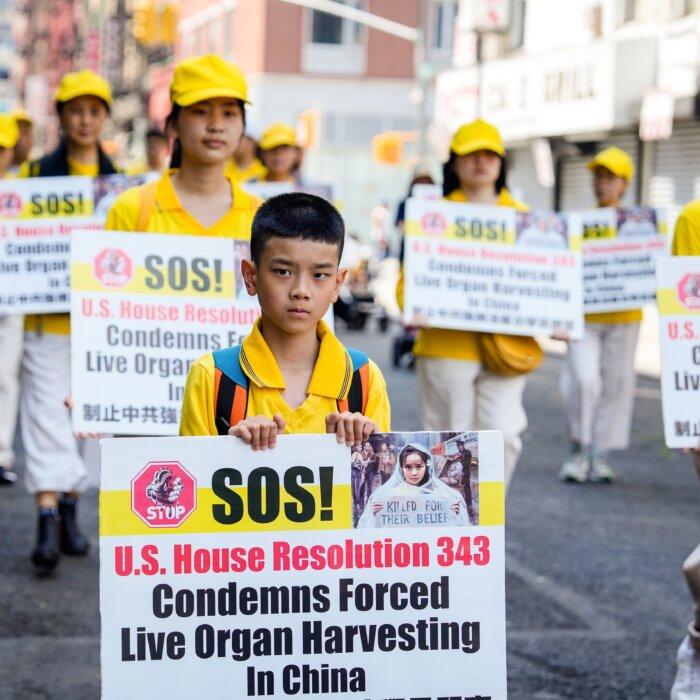The House has passed a bill with the goal of forcing an end to the Chinese regime’s long-running campaign of persecution against the spiritual group Falun Gong.
Falun Gong, a meditation discipline based on the principles of truthfulness, compassion, and tolerance, has been the subject of a relentless campaign in communist China designed to eradicate the faith.
The Falun Gong Protection Act, which still needs Senate approval, calls for “an immediate end” to the persecution. If signed into law, it will require the United States to shun any cooperation with China in the organ transplantation field and to deploy targeted sanctions and visa restrictions to address the persecution of Falun Gong on the international stage.

Mr. Perry said on the House floor on June 25 that having to discuss the issue of systematic forced organ harvesting in 2024 is itself “very frightening.”
“Forced organ harvesting—a form of mass murder—this is something [like what we saw with] Josef Mengele, but it’s happening today,” he said.
“In China, if you’ve got the money, there is no waiting list for you to get an organ. ... There’s a ready supply of these organs.”
Mr. Perry described the bill as the “first binding commitment by Congress to take strong legal action against the persecution and forced organ harvesting of Falun Gong, making Falun Gong the centerpiece of legislation—an action long overdue after 25 years.”
The Falun Gong Protection Act would also mandate sanctions on Chinese officials, military leaders, or others who are “knowingly responsible for or complicit in, or have directly or indirectly engaged in, the involuntary harvesting of organs” in China.
Anyone on the sanctions list would be unable to enter the United States or engage in U.S.-based transactions and would have their current visas revoked. The bill also carries a civil penalty of up to $250,000 and a criminal penalty of $1 million and 20 years in prison for offenders.
Under the bill, the secretary of state, the secretary of health and human services, and the director of the National Institutes of Health would need to determine whether the persecution of Falun Gong constitutes an “atrocity” under the Elie Wiesel Genocide and Atrocities Prevention Act of 2018 and find out how much U.S. grant money has supported organ transplantation in China.
“The widespread, systematic, state-sponsored persecution of the Falun Gong by the Chinese Communist Party leadership of the PRC constitutes a clear violation of Falun Gong practitioners’ basic human rights and may constitute genocide,” the legislation’s text reads.
Speaking in support of the bill, Rep. Greg Stanton (D-Ariz.) focused on the “unimaginable suffering” the victims go through, with “their most basic rights stripped away, their bodies violated in the most grotesque manner.”
“Imagine the terror, and despair, of those who are imprisoned for their beliefs, only to have their organs forcibly taken from them,” he said. “This is not just a statistic, or a distant issue. These are real people—people with families, with dreams, who endure unbelievable pain and fear.”
Rep. Rich McCormick (R-Ga.) thanked Mr. Perry for introducing the bill.
“The idea that a member of a religious minority could be targeted and killed so that their organs could be harvested is worthy of a horror movie,” he said.
In 2006, The Epoch Times first reported on organ harvesting after eyewitnesses came forward alleging that killing for organs was taking place in Chinese hospitals and underground facilities. One witness, using the alias Annie, said her husband removed corneas from living Falun Gong practitioners while working as a neurosurgeon at a hospital in northeastern China.
“The lives of Falun Gong practitioners are not protected by the government. Their lives were deemed cheap by the authorities,” she said at the time. “It’s a national crime.”







